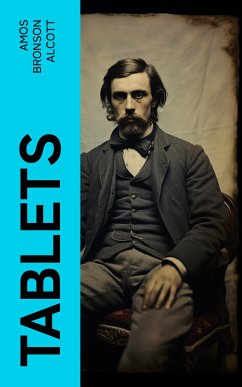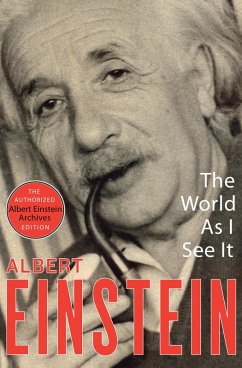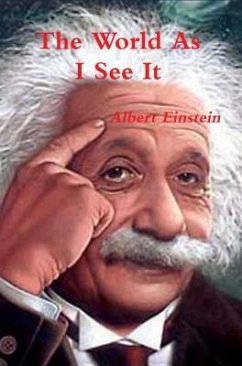
Tablets (eBook, ePUB)
Delving into Transcendentalist Philosophy and Moral Reflections

PAYBACK Punkte
0 °P sammeln!
In "Tablets," Amos Bronson Alcott offers a profound exploration of education, philosophy, and ethics through a series of poetic aphorisms and reflective essays. Written in a style that blends transcendentalist ideals with insightful moral considerations, Alcott's work captures the essence of 19th-century American thought, providing readers with a contemplative examination of the moral and intellectual development of individuals. The text is characterized by its intricate language and rich imagery, challenging readers to engage deeply with its themes of personal growth, social responsibility, a...
In "Tablets," Amos Bronson Alcott offers a profound exploration of education, philosophy, and ethics through a series of poetic aphorisms and reflective essays. Written in a style that blends transcendentalist ideals with insightful moral considerations, Alcott's work captures the essence of 19th-century American thought, providing readers with a contemplative examination of the moral and intellectual development of individuals. The text is characterized by its intricate language and rich imagery, challenging readers to engage deeply with its themes of personal growth, social responsibility, and the pursuit of truth. Amos Bronson Alcott, a prominent figure in the transcendentalist movement and a close associate of Ralph Waldo Emerson and Henry David Thoreau, was deeply influenced by his own experiences as an educator and philosopher. His commitment to progressive education and a holistic approach to teaching stems from his belief in the inherent goodness and potential of humanity. This conviction is vividly expressed in "Tablets," as Alcott endeavors to inspire a new generation of thinkers to question societal norms and embrace a more profound ethical framework. "Tablets" is an essential read for anyone interested in philosophical literature or the evolution of American thought. Alcott's articulate prose and timeless insights encourage readers to become active participants in their own moral and intellectual journeys, making this work a compelling addition to the library of anyone seeking to understand the depth of human experience.
Dieser Download kann aus rechtlichen Gründen nur mit Rechnungsadresse in A, B, BG, CY, CZ, D, DK, EW, E, FIN, F, GR, H, IRL, I, LT, L, LR, M, NL, PL, P, R, S, SLO, SK ausgeliefert werden.













